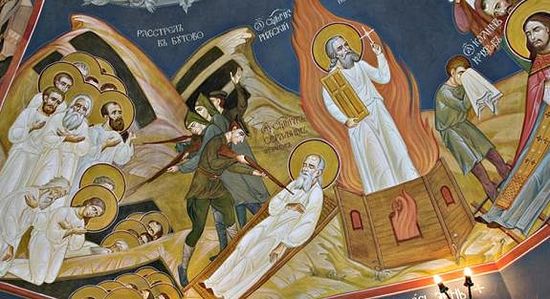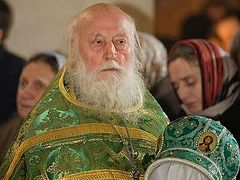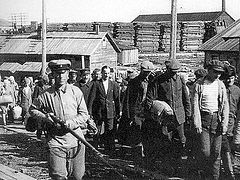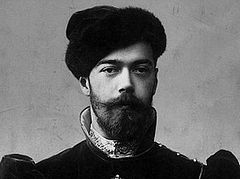Moscow, November 8, 2017
The chairman of the Moscow Patriarchate’s Department for External Church Relations Metropolitan Hilarion (Alfeyev) of Volokolamsk expressed his conviction that Russia would have achieved much greater success if it had developed not along a revolutionary, but an evolutionary path. Speaking on the “The Church and The World” television program on the eve of the centenary of the bloody Russian revolution, His Eminence gave a harsh assessment of the events of those years, noting that the revolution inflicted a huge wound which has as yet not dissipated, and has set the country back many years, reports Russian Line.
“For the Church, this date means above all a prayerful remembrance of those millions of people who were victims of the revolution. It was a very tragic event in the history of our homeland, and although there are now various evaluations of what happened in the years of the revolution, the Church, nevertheless, issued its evaluation of these events when it canonized the New Martyrs and Confessors of the Russian Church,” Met. Hilarion stated, recalling the more than 1,000 saints that were glorified in 2000, with another 1,000 being glorified since then.
“The Church clearly spoke then about who were victims, and who were the executioners,” the prelate added.
In His Eminence’s estimation, the glorification of the New Martyrs is the foundation upon which the Church must analyze this terrible anniversary. “First of all, we must not forget those who were innocent victims and pray for their repose, and additionally, we must not forget the lessons of history, and I think that the most important lesson we can take from the revolution and the events following after it is that it’s impossible to build a righteous society without God,” he continued.
Pre-revolutionary Russia had huge potential, Met. Hilarion believes, noting its rapid economic growth. He also spoke of the reforms which were opposed by some at the time, while noting that reforms are also opposed today. “Russia had the chance to achieve some great success—much more than it did, if it had developed not along a revolutionary path, but evolutionary… I think that all the problems that arise can be solved in on the evolutionary path.”
Many people today debate about the revolution—what it brought, and why it was necessary—the metropolitan said, but there are always problems, including today, but for people to undermine authority with foreign funds, only to seize that authority themselves is not the answer: “They will seize power and ‘bless’ us with what the Bolsheviks ‘blessed’ the people—that is, with mass repressions. Is that what we need now?”
According to Met. Hilarion, before the beginning of the First World War, Russia “was developing very stably and quickly, including in economic terms, in terms of educational development, and in many other sectors.”
“We can even recall that the electrification of Russia, which was later connected with the name of Lenin, was actually developed under the tsar. Therefore, Russia had the chance at an evolutionary development, but it was missed, and our country paid a very huge price for the revolution—millions of lives. This is everything, and it answers the question, ‘Did we need a revolution or not?’” Met. Hilarion concluded.







